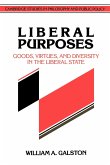Fred Schueler seeks to replace such causal views, arguing that they leave out two essential elements of these explanations. Reasons explanations are inherently teleological in the sense that the agent's reasons always explain the purpose for which he acted. They are also inherently normative since it is always possible that an agent's reasons for doing something are not good reasons. Schueler argues that causal accounts of reasons explanations make no sense of either of these features; he argues instead for an account based on practical deliberation, our ability to evaluate the reasons we accept.
People act for reasons. That is how we understand ourselves. But what is it to act for a reason? This is what Fred Schueler investigates. He rejects the dominant view that the beliefs and desires that constitute our reasons for acting simply cause us to act as we do, and argues instead for a view centred on practical deliberation, our ability to evaluate the reasons we accept. Schueler's account of 'reasons explanations' emphasizes the relation between reasons and purposes, and the fact that the reasons for an action are not always good reasons.
Hinweis: Dieser Artikel kann nur an eine deutsche Lieferadresse ausgeliefert werden.
People act for reasons. That is how we understand ourselves. But what is it to act for a reason? This is what Fred Schueler investigates. He rejects the dominant view that the beliefs and desires that constitute our reasons for acting simply cause us to act as we do, and argues instead for a view centred on practical deliberation, our ability to evaluate the reasons we accept. Schueler's account of 'reasons explanations' emphasizes the relation between reasons and purposes, and the fact that the reasons for an action are not always good reasons.
Hinweis: Dieser Artikel kann nur an eine deutsche Lieferadresse ausgeliefert werden.








